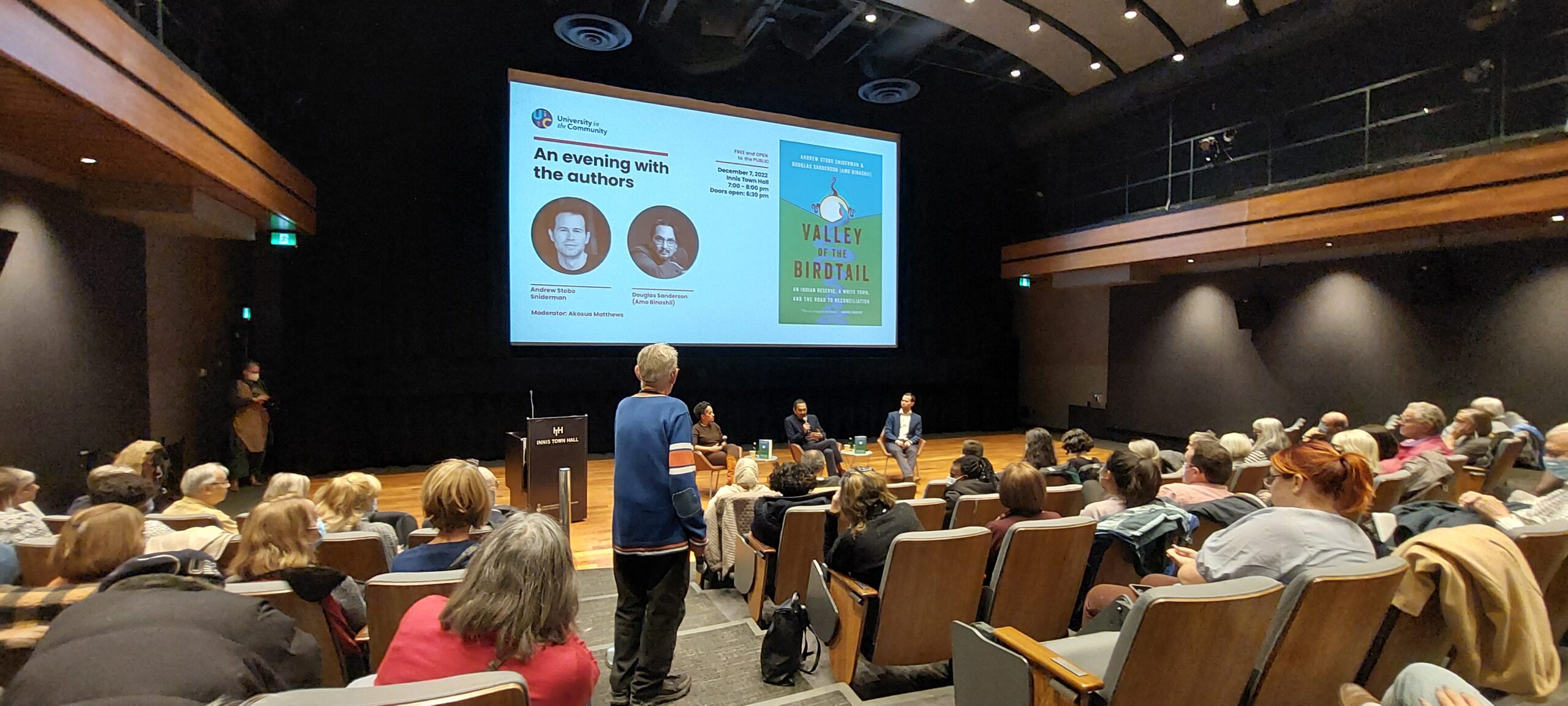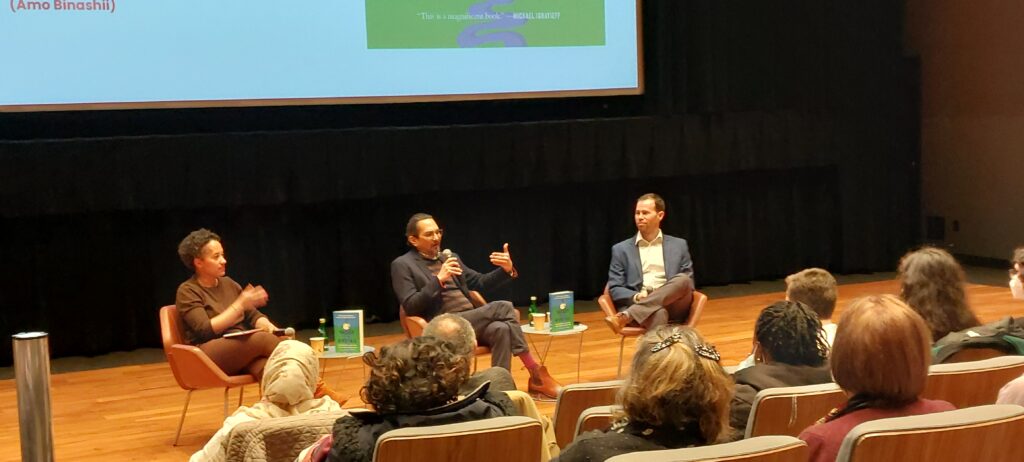In the Community
What a Night!

University in the Community Hosts an Evening with the Co-authors of Valley of the Birdtail: An Indian Reserve, A White Town and the Road to Reconciliation
On December 7th, the students of University in the Community (UitC) hosted an evening with the co-authors of the recently-published book, Valley of the Birdtail: An Indian Reserve, A White Town, and the Road to Reconciliation. The event was held at Innis Town Hall and in the spirit of our UitC program, it was free and open to the public.

With the backdrop of an eye-catching poster designed by our brilliant Andrew Oliver (president of the Workers’ Educational Association of Canada – WEA, the non profit organization that initiated UitC in 2003), audience members settled in before UitC student, Nenke, opened the event with the land acknowledgement. She reminded the crowd that although we are all immigrants or refugees to Canada, we are also all newcomers. Others – Anishnaabeg, Haudenosaunee, Chippewa, Mississaugas of the Credit, and Huron-Wendat peoples – were in Tkaronto at least 15,000 years ago. It us our responsibility to honour their land, the presence of First Nations people, and the spirit of the ‘Dish with One Spoon’ treaty.
After welcoming the audience members and giving a brief introduction to UitC’s history and its purpose, Joanne, UitC’s program coordinator, introduced co-authors Andrew Stobo Sniderman, Douglas Sanderson (Amo Binashii), and the evening’s moderator, Akosua Matthews. The three panelists have such exceptional biographies (and they’re still young!) that it was not easy to choose what to include and what to eliminate. Briefly, Andrew and Akosua both received their law degrees at U of T and both were students of Douglas Sanderson who is an associate professor at U of T’s Faculty of Law. Andrew is a working journalist, Akosua is a practicing lawyer and Douglas teaches law and holds the Prichard Wilson Chair in Law and Public Policy.
In conversation with the moderator, the co-authors responded to probing questions in a manner that was both passionate and articulate. The book charts the course of the human histories of two neighbouring but deeply-unequal communities, one settler Canadian (largely Ukrainian) who live on one side of the valley in Rossburn Manitoba, and one indigenous community who live on the opposite side of the valley on a reserve called Waywayseecappo. At times, the overwhelming tragedy, racism, and unending inequity and division is hard to read. I, like many others, had to take breaks in between reading just to catch my breath. But without giving too much away, in what seems like an impossibility, a ray of hope appears when both communities come to realize that in order to make a small step towards reconciliation, they, themselves, must be the bridge. Change is possible but it takes leadership and an understanding that giving up something today can lead to mutual gains in the future. Reconciliation, we were reminded, is not a short-term project; it is a generational undertaking.
This superbly-researched and beautifully-written book brings newfound clarity, and hope, to the question: Can Indigenous Peoples and non-Indigenous Canadians live side by side as equals? It asks whether non-Indigenous Canadians care enough about Indigenous Peoples to think beyond themselves and to ask: What can I do, what must I do, to turn my mirror into a doorway?
At the close of the event, Ali, one of the students who attends UitC, gave a heartfelt thank you to the panelists on behalf of UitC students and the audience. He thanked them for writing the book, for their honest telling of the Canada’s appalling history of racism towards Indigenous Peoples. Racism is a disease, Ali said, one that he has witnessed first-hand.
And yet… there we all were, together, on an evening where the speakers had us in their thrall, enlightened by the book’s truth, taking one step closer to our long journey to cross that historical valley.
University in the Community is a small, free, non-credit program that offers university-level classes to adults who have a passion for learning, especially those who face barriers to post-secondary education. We are a project of the Workers’ Educational Association of Canada and receive support from U of T’s Faculty of Arts and Science, Innis College and Senior College.
Does this sound like a program you would like to join? We meet weekly on Wednesday evening. Our Winter term starts at the end of January, 2023. Drop us a line!
E: universityinthecommunity@gmail.com




